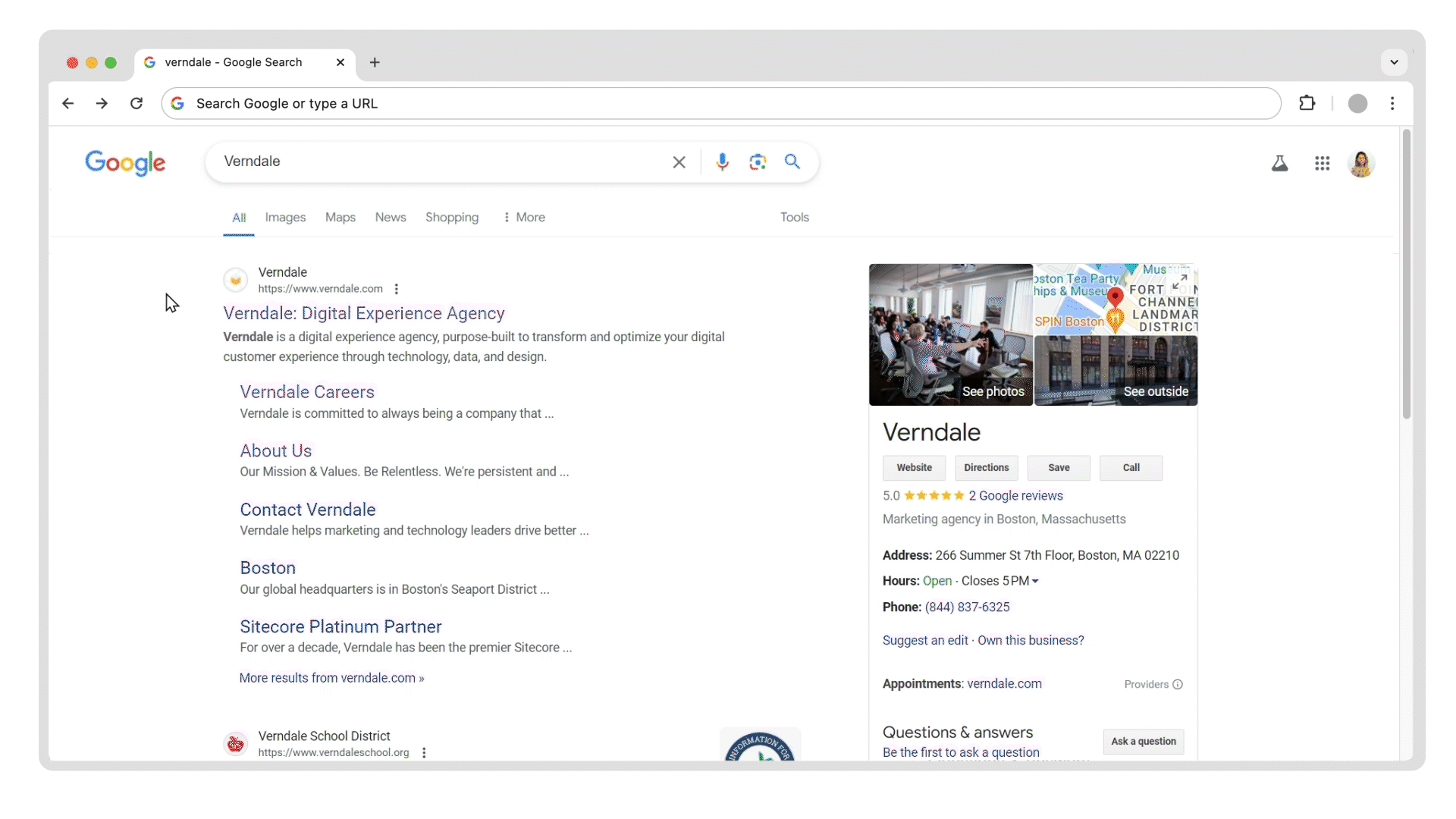Videos: Elevating Your Performance Marketing Strategy with Google Ads & Retargeting
Nov 15, 2023 • 1 Minute Read • Nahomi Lopez, Digital Marketing Lead


Google announced AI Overviews, a dramatic shift to Google search as we know it. Google's search experience, using AI, provides answers to people's search questions and queries on the search engine results page (SERP).
AI Overviews are content snapshots—generative answers powered by Google's large language model (LLM), Gemini. They appear at the top of specific search results before organic results in the search experience.
Overviews are AI-generated, not snippets. The model uses content culled and synthesized from various sources to serve up an answer in the search results page without requiring people to click through to the content. However, AI Overviews will cite sources.
AI Overviews have been launched in the US following a pilot program using billions of test queries, while Google expects a worldwide rollout by the end of the year.

AI Overview is a significant change as Google pulls even more content from sites and puts it on a Google SERP, with no click needed, threatening to reduce search-driven traffic to any website significantly.
Google claims that "links included in AI Overviews get more clicks than if the page had appeared as a traditional web listing for that query." Brands or publishers may lose confidence that their content will be properly credited or represented.
Google will likely seek to monetize AI overviews, not making paid search irrelevant. While summaries are not advertising-supported yet, we may see a "pay-to-play" mechanism roll out.
It's still all about building your brand to drive your ranking factors—what delights customers will influence LLMs, plus continuing to optimize via on-page and off-page tactics.
For years, we've trained ourselves to adapt our language to make search work for people. AI Overviews seem to promise a shift to natural language and, critically, natural questions. It's a paradigm shift as we'll no longer need to wordplay what we want to find out using keywords. Similarly, the results experience will be less trial-and-error of clicks and back buttons, as AI Overviews aims to show us what we need in situ.
The world of search engine optimization (SEO) has long been about artfully working the system—finding the best ways to shape content to show up. In many ways, AI Overviews may be no different in the long term. We may start to see SEO becoming "AIO" – AI Optimization, with the role and function of website content training and influencing AI agents as much as it does customers and prospects.
In the short term, however, there will be a learning curve, and its impact will be felt in traffic KPIs and organic performance. While AI Overviews will include citations to the websites that informed its answer, that feature is unlikely to compensate for potential traffic loss. Gartner has predicted as much as a 25% decrease in traditional search volumes by 2026. Note that they haven't disclosed the method used for this prediction, and such a broad estimation for all types of sites is not very helpful.
Google will provide data on clicks and impressions your site gets from AI Overviews in Search Console. However, they won't differentiate whether the data came from a result of an AI Overview or not.
Don't panic. Start by monitoring your search data to review the impact as this change rolls out. Things may change, but the effect on each organization will be different. Understanding it in the context of your audiences and how your brand solves their needs is critical.
This more passive monitoring will give you a baseline from which to operate. Once you're grounded, consider the following as more active responses to mature alongside the AI updates.
At Verndale, we specialize in SEO and content consulting, always anticipating how innovations like Google's AI Overviews will impact your brand. We're ready to partner with you and are dedicated to helping you stay ahead of the curve and optimize your digital marketing strategy for these changes.
Get in touch to start a conversation about how you can prepare.
